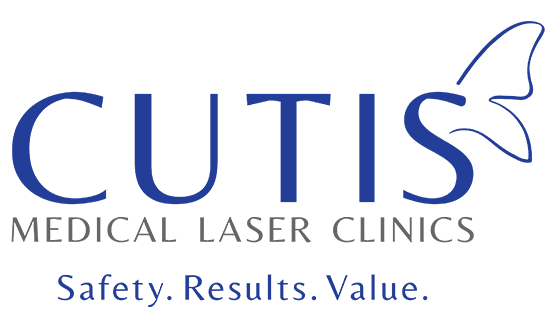Our very own Dr. Sylvia Ramirez, along with Mr. Gunther Scherz and other esteemed colleagues, has recently published a scientific paper titled “The Primacy of Ethics in Aesthetic Medicine: A Review” in the Plastic & Reconstructive Surgery-Global Open, a peer-reviewed international journal focusing on global plastic and reconstructive surgery.
This review recognized the multiple ethical challenges brought upon by the shift from doctor-led care to a consumer-driven model. It sheds light on ethical dimensions of medical aesthetics, while also exploring the effects of:
- Consumer demand
- Societal influences
- Technological advancements on patient care and well-being
Using a comprehensive analysis of existing research, the review discussed the rise of aesthetic medicine, highlighting ethical challenges faced by practitioners. It explored the impact of social media and marketing on patient perceptions and decision-making, as well as:
The rise of aesthetic medicine – There is increased awareness and acceptance of aesthetic treatments, but this growth raises concerns about safety, professionalism, and equitable access to care.
The ethical challenges of medical aesthetics – According to the paper, patients often come with specific treatment interests influenced by factors such as social media and societal pressures. This shifts the dynamic from a traditional “doctor-led” model to a “consumer-led” approach, as well as challenges, including:
- Unrealistic beauty standards
- Consumer-driven care
- No standard credentialing requirements
- Subjective aesthetic outcomes
- Aesthetic influencers not regulated
- Limiting testing of novel treatments
- Fee-for-service incentives
- Financial conflicts of interest
The paper also tackled the challenges of measuring beauty brought upon by the subjective nature of defining beauty and the lack of objective measures. This is why the need for validated patient-reported outcomes becomes important. It also shed light on:
Appearance and aging anxiety – Beauty standards, influenced by the media, place pressure on individuals to conform to narrow definitions of beauty.
Limited evidence-base of aesthetic treatments – Many techniques and innovations within medical aesthetics often lack standardized scrutiny and evidence-based research, raising ethical concerns about potential benefits, patient safety, and public deception.
Procedures by nonphysicians – In some countries, nonphysicians and providers without medical training are authorized to perform aesthetic procedures. This can lead to potential adverse events and variations in patient care.
Overfilled syndrome – This adverse outcome can occur when aesthetic treatments are used excessively, resulting in visually striking outcomes and negative societal views.
Medical marketing and the physician influencer – While social media is a great marketing tool for aesthetic physicians, it raises ethical concerns related to the dissemination of misleading information and the difficulty of saying “no” to inappropriate treatments.
Beauchamp and Childress’ Four Core Ethical Principles and Aesthetic Medicine
The paper noted that the moral theory of principalism, developed by Beauchamp and Childress in 1979, is crucial in guiding ethical discussions in medicine. It is based on four key principles:
- Respect for autonomy
- Beneficence
- Nonmaleficence
- Justice
These principles are important in addressing ethical dilemmas in medical practice, including in the field of aesthetic medicine.
Recommendations For Ethical Aesthetic Practices
The paper also offered recommendations to navigate the ethical challenges of medical aesthetics. These include:
- Guidelines for informed consent – Informed consent is crucial for patient autonomy and should include information about treatment benefits, risks, and alternatives. The same is also true for tailoring information to patient health literacy and cultural backgrounds.
- Strategies for mitigating appearance anxiety – Aesthetic practitioners need to be cautious during consultations as discussions of aesthetic concerns may reveal underlying anxieties in patients. It is best to move away from narrow beauty definitions, embracing diversity and dignity at all life stages.
- Facilitating effective shared decision-making – Shared decision-making involves a partnership between doctor and patient, where patients share goals and preferences, and doctors offer expertise and clarify outcomes. Providers, however, can decline a procedure if, in their professional judgment, it does not align with the patient’s realistic expectations and outcomes
- Responsible use of social media – Aesthetic doctors need to exercise caution when using social media. It is recommended to separate personal and professional accounts and accurately represent credentials. The quality of content created by healthcare providers online is crucial, as most patients rely on it for information.
Aesthetic medicine faces ethical challenges due to its focus on appearance-enhancing treatments instead of life-saving procedures. Key ethical principles such as autonomy, beneficence, nonmaleficence, and justice should guide aesthetic practitioners in navigating these challenges.
There is also a notable absence of well-defined ethical guidelines in the field of aesthetic medicine. This then highlights the need for professional societies to establish formal standards and ethical training for nonsurgical providers to uphold professionalism and prioritize patient well-being.
- If you would like to be an informed patient, please contact us at +65-6801-4000 or
hello@cutislaserclinics.com. - Cutis Medical Laser Clinics, 9 Scotts Road Pacific Plaza, Scotts Medical Center #08-07, Singapore – 228210
+65-6801-4000 - hello@cutislaserclinics.com
